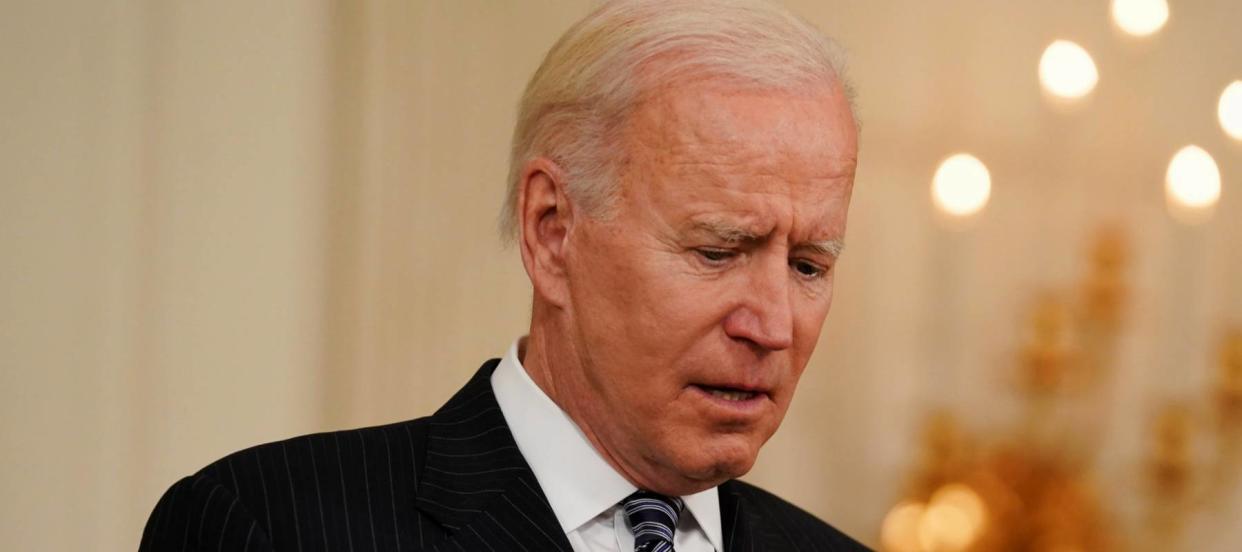There's no fourth stimulus check, but a more obscure COVID benefit covers $9,000 for a funeral

The nation’s massive pandemic rescue plan includes one kind of funding that gets less attention: a funeral assistance program offering families of COVID victims up to $9,000 to cover burial costs.
Part of the $1.9 trillion COVID relief legislation that President Joe Biden signed in March, the funeral expenses program extends much-needed help to families who lost wages in the pandemic or who are trying to recover from debt. That said, there's no income limit to apply.
Here’s more on who is eligible for the funeral help and how you get it.
How does it work?

While the federal government has helped Americans cover funeral costs during disasters before, this initiative is set to become the largest of its kind.
It’s led by the Federal Emergency Management Agency, the government branch that responds to hurricane and flood fallout.
In a Nov. 1 statement, FEMA says it has provided over $1.2 billion in COVID funeral support for more than 196,000 people.
“The COVID-19 pandemic has brought overwhelming grief to many families,” FEMA says on its website. “At FEMA, our mission is to help people before, during and after disasters. We are dedicated to helping ease some of the financial stress and burden caused by the virus.”
Through the assistance program, survivors can apply for reimbursement for the purchase of a plot, burial, a headstone, clergy services, the transfer of remains, cremation or other services associated with a funeral.
Who qualifies for support?

To apply, you have to be a U.S. citizen, noncitizen national or qualified alien who paid for funeral expenses after Jan. 20, 2020.
And those funeral expenses have to be for an individual whose death in the United States may have been caused by or was likely the result of COVID-19, according to FEMA’s website.
You can claim up to $9,000 for an individual’s funeral expenses, but if you’ve lost more than one member of your family, you can apply for as much as $35,000 in reimbursement.
But if you’ve already received any other type of assistance for funeral costs — such as a burial benefit associated with a life insurance policy — that will reduce or entirely offset what you’re entitled to under FEMA’s program.
And you’ll only receive what you paid. So if you opted for a lower-cost funeral, you may not get the full $9,000.
Burial costs belong to just one category of the many expenses that families are saddled with when a loved one dies — which is why one of the best ways of protecting the people you love is shopping around for life insurance policy that will provide peace of mind.
What do I have to do to get money?

FEMA has a dedicated toll-free hotline, along with a call center, to answer questions about the program.
Families, regardless of their income, can call 844-684-6333 to apply. FEMA says the process takes about 20 minutes but recommends applicants collect all the necessary information and documentation before placing the call to help speed things up.
Once you’ve successfully applied, the agency will give you an application number and allow you to provide supporting documents online, by fax or by mail.
FEMA will ask you to provide the receipts and other documentation of what you paid for, including caskets or urns, burial plots, headstones, a funeral service, and any other costs.
There’s currently no option to apply for assistance online. FEMA also hasn’t assigned a deadline to apply for funeral assistance.
How to cut other costs during this tough time

Even without funeral expenses factored in, millions of American households are struggling to make ends meet almost two years into the global pandemic.
If you’re spending carefully during these uncertain times, you have some options.
Shrink your other insurance bills. You may be overpaying for your car insurance by as much as $1,100 a year. Shop around for a better deal and save yourself hundreds a month. And while you’re at it, trim another couple hundred of dollars from your budget by comparing rates to find a lower price on homeowners insurance.
Get the best deals. Prices can be all over the place when you shop online, so make sure you don't overpay. A tool to compare prices automatically hunts for better deals and coupons before you click "buy."
Slash the price of your debt. If you’re relying on your credit card, you’re soon going to be dealing with a ton of expensive interest. Rein in your debt — and pay it off more rapidly — by rolling your balances into a lower-interest debt consolidation loan.
Build your investment portfolio. You don't need another stimulus check — or much money at all — to put a toe in the stock market or broaden your investments. A popular app helps you build a diversified portfolio by investing your “spare change" from everyday purchases.
This article provides information only and should not be construed as advice. It is provided without warranty of any kind.

 Yahoo News
Yahoo News 
